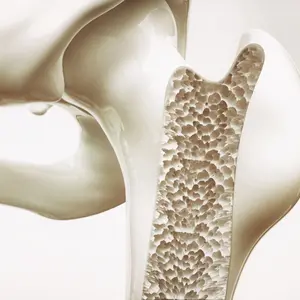
WELLthier Living and Aging

WELLthier Living and Aging
Rising to the Calling: Earning Wisdom as We Age
by Carrie Jackson
With knowledge that extends beyond any classroom and humility that provokes a familiar kinship, wise elders have been the pillars of communities for millennia. Their nurturing energy, loving warmth and eternal wisdom provide a foundation for learning and growth. By harnessing a connection to nature, reframing cultural roles and cultivating grace and self-care, we all have the capacity to embody the role of a wise elder in our own way.
Nature’s Lessons
“Wise elders are repositories of how to live a good life within nature, and not against it. They are able to perceive and act according to the bigger picture and see the impact of actions now on future generations,” says Dr. Darcia Navaez, professor of psychology emerita at the University of Notre Dame, president of the nonprofit Kindred World and founder of its initiative, The Evolved Nest.
In her book, The Evolved Nest: Nature's Way of Raising Children and Creating Connected Communities, Narvaez and co-author G.A. Bradshaw, Ph.D., examine how we can restore natural wellness in our families and communities by living in harmony with nature. She points to the idea of “nestedness” as an inspiration for reexamining our own systems of nurturing, understanding and caring for our young and one another.
“A wise elder is one who is deeply nested. They display horizontal nestedness in that they attend to honoring ancestral wisdom and to living for the well-being of future generations. They display vertical nestedness in that they honor and live with Earth’s cycles and nature’s laws, but also feel connected to and confident in the cosmos,” Narvaez explains.
Instead of teaching, wise elders act as guides and model behavior for others. “Wise elders know everyone’s path is unique, and everyone has a gift to uncover, develop and share with the community,” advises Narvaez. “They encourage us toward love and openness, instead of bracing against change. They inspire us to work through our fears and know that words matter. It is easy to discourage the spiritual development of others with words. Stories provide an invitation, instead of persuasion or coercion.”
This wisdom often comes from lessons they have embraced when facing challenges. “It’s not that wise elders are naive livers of life. They are scarred. To become self-actualized, one must accept suffering and learn from it,” she says.
At the same time, they acknowledge that every moment is a gift and live life to the fullest. “Wise elders know enjoyment and want others to experience it, too, whether it’s ice cream, cookies or a sunset. After all, if you are not experiencing foundational joy in your life, something is quite wrong,” asserts Narvaez.
Seeds of Wisdom
A wise elder’s connection with nature is deeply rooted—grounded by the land and inspired by the promise of cultivation. “Seeds are our 400-million-year-old ancestors and elders. Gardens grow us more than we grow them. They nod and bow to seeds; and gardens as teachers are gardens as elders,” says Petra Page-Mann, co-owner of Fruition Seeds, a farm in Naples, New York, that grows and shares regionally adapted seeds.
Founded in 2012, Fruition Seeds is rooted in the idea that each seed, like each of us, is meant to change the world. In August 2024, they shifted from seed sales to sharing seeds as an embodied gift practice, honoring the co-owners’ desire to respect the seeds and practice reciprocity. “This move deliberately mirrors and honors what the seeds are teaching us,” Page-Mann explains. “They are gifts to the Earth, as we all are, and not ours to buy and sell. It’s a way to practice remembering and reimagining a culture of care and belonging. We are rehydrating our relationship with seeds and the land and moving away from a transactional being to an open place of giving and receiving.”
Page-Mann says, “I think of an elder as someone who inspires, challenges, uplifts and comforts. They are people who can accompany us into our challenges and through them, and not just try to fix problems. I see our relationship to wise elders in the way a river flows and changes on a whim. Sometimes it flows quickly, and at other times it moves smoothly and slowly. There might be rocks under the surface or waterfalls and dams along the way. At any moment in our lives, we experience different elements of that river. The river holds us as elders do: always present, offering diverse forms of medicine. There might be a lightning bolt of wisdom or awareness, followed by a cascade of insight. Other times, it’s just sweet meandering; but we don’t need to paddle or swim because we are held by their flow.”
Rising From Adversity
Wise elders teach us that by leaning into challenges, we can reframe the risks associated with growth. “If we are in our comfort zone, we are safe, and if we are in our panic zone, we are not safe. There’s a discomfort in-between. Wise elders are constantly extending their comfort zones and window of tolerance a little wider, so they can move and breathe more freely in that space,” says Page-Mann.
Although anyone can step into elderhood, Page-Mann believes that society needs to reframe its priorities in order to nurture the process. “We don’t have a cohesive cultural fabric for the role of a wise elder,” she points. “It’s a capitalist and supremacy culture not grounded in love and belonging. Elders have been eroded from our lives. We’re all really shrunken, disconnected versions of ourselves.”
By challenging current priorities and shifting back to the organic flow of the Earth, we can embrace and embody the traits we seek and become role models and guides for others. “There is a natural progression of maturation where we play different roles in the community and can accompany each other with those roles. If we are held in a cohesive cultural fabric of love and belonging, we can step into whatever role is calling us,” Page-Mann asserts.
Self-Care Comes First
While wise elders are generous with their time and attention, they value staying grounded. Cheryl Richardson, the Massachusetts-based author of Self-Care for the Wisdom Years: Practical Ways to Celebrate the Mystery and Wonder of Aging, says that doing inner work allows elders to become more available for others. “Wise elders are full of life, steeped in gratitude, eager and excited for new adventures, and able to respond to anything placed before them with wisdom and grace,” she says. “They face aging and mortality with open eyes and a curious heart. They are self-reflective, committed to personal growth and anxious to invest time and energy into their inner lives. They are also happy to share what they’ve learned about life and aging with others. They make their greatest contribution to society by being a powerful example of what it means to embrace aging and the wisdom it provides.”
According to Richardson, “Wise elders see aging as a gift and an opportunity to learn about themselves in new and different ways. They are able to step back, take a deep breath and check their reactions before responding to life’s challenges. They consciously cultivate patience and self-reflection when faced with adversity. The wisdom years are an excellent time to challenge the voices that cling to old ways of life. It’s an opportunity to focus less on where you should be and more on where you are and what your soul wants. That’s when the magic of the moment sweeps you off your feet.”
Time Is Essential
At a time when we are living longer than ever, Richardson sees an opportunity to maximize our later years. “Now that longevity affords us another second adult life, we have time to evolve even more before we die. When people age consciously and prioritize their emotional and physical health, inner life, intimate connections with others and managing their minds, they age with far less fear and much more aliveness, peace and emotional freedom,” she explains.
Wise elders are in tune with their own capacity and availability, and they understand the importance of setting limits. “The gift of mortality is that it makes it easier to say no to those things that are no longer important. Therefore, boundary-setting becomes easier,” Richardson says. “When you know you have limited time left, you are passionate about spending it wisely. Wise elders have a unique ability to let go of responsibilities that are no longer theirs, and to make space and sit with it. They know when enough is enough and can set firm, loving boundaries. Cultivating these capabilities will not only help us make the most out of our remaining years, but they’ll also mold us into the kind of wise elders so many of us wish we had growing up.”
Carrie Jackson is a Chicago-based freelance writer and frequent contributor to Natural Awakenings. Connect at CarrieJacksonWrites.com.


 By
By






